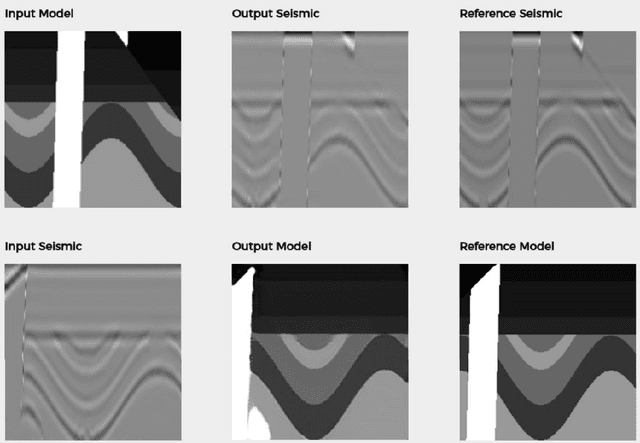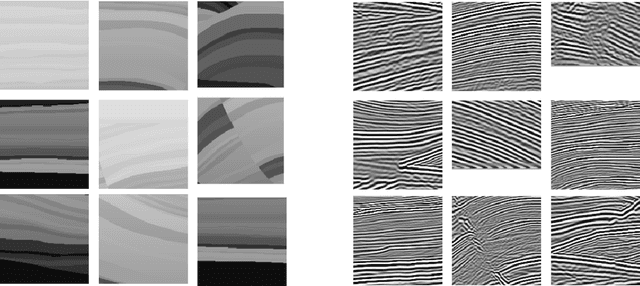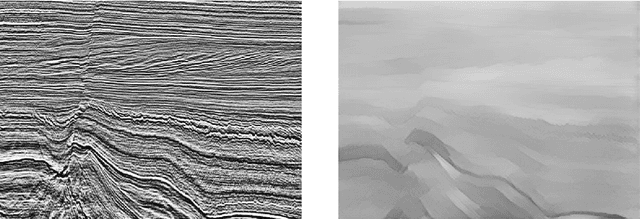Rapid seismic domain transfer: Seismic velocity inversion and modeling using deep generative neural networks
Paper and Code
May 22, 2018


Traditional physics-based approaches to infer sub-surface properties such as full-waveform inversion or reflectivity inversion are time-consuming and computationally expensive. We present a deep-learning technique that eliminates the need for these computationally complex methods by posing the problem as one of domain transfer. Our solution is based on a deep convolutional generative adversarial network and dramatically reduces computation time. Training based on two different types of synthetic data produced a neural network that generates realistic velocity models when applied to a real dataset. The system's ability to generalize means it is robust against the inherent occurrence of velocity errors and artifacts in both training and test datasets.
 Add to Chrome
Add to Chrome Add to Firefox
Add to Firefox Add to Edge
Add to Edge